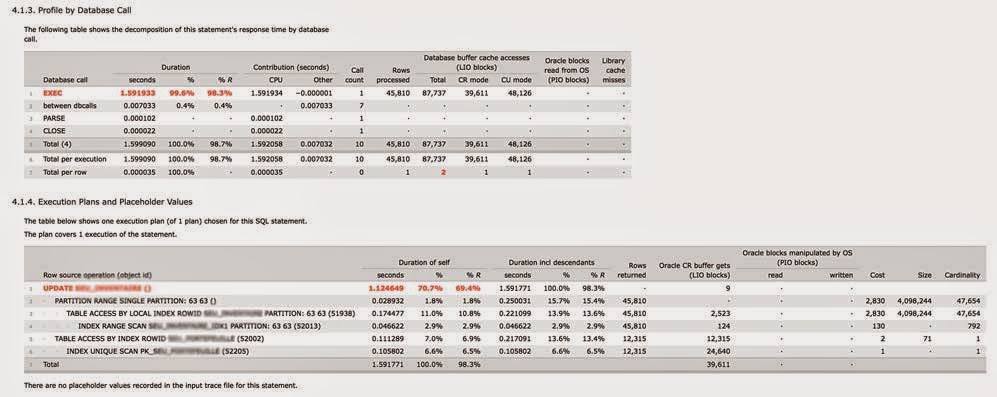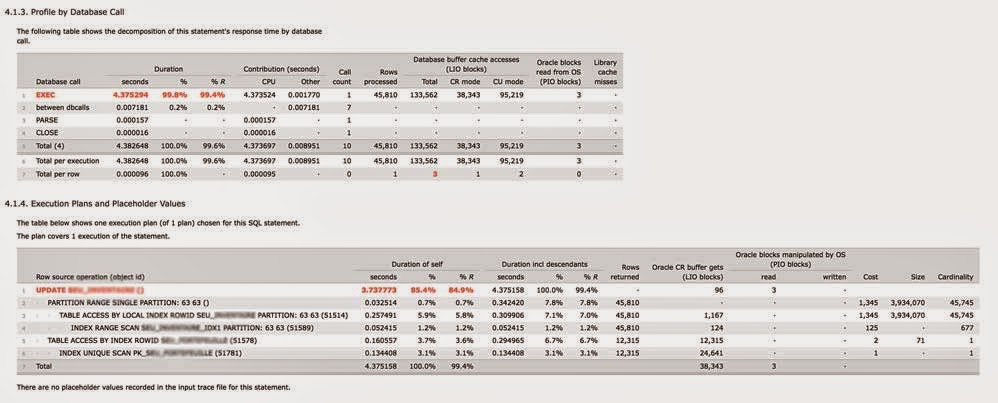I did some small tests (actually more troubleshooting ) with OLTP compression, a couple of weeks back.
Some execution times nearly doubled, I wanted to get a clear understanding of what happened so I asked to trace the procedure.
Which was easy since dbms_application.set_module could be used in the procedure to set the module and the action.
This made it much less cumbersome to enable the trace, the dbms_monitor package has a procedure which allows you to start tracing whenever the combination of service_name and module is used very handy
so in the end I used this to trace
DBMS_MONITOR.SERV_MOD_ACT_TRACE_ENABLE('SERVICE_NAME','MODULE');
That made it easy to trace as soon as the procedure was launched and avoid to play around with logon triggers and trace more, then necessary.
I did the tests both with a warmed up DB cache as with a flushed db cache and will do them again next week the results were in the same league
But back to the problem, speed of the query was much slower.
I checked both
NONCOMPRESSED
45810 rows updated.
Elapsed: 00:00:01.59
COMPRESSED
45810 rows updated.
Elapsed: 00:00:04.38
Quite a difference …
The query looks a bit like this I had to obfuscate because of privacy reasons :
UPDATE TAB1 SET
(COLUMNS ....)
= (SELECT COLUMNS ....
FROM TAB2
WHERE TAB2.ID = TAB1.TAB2_ID)
WHERE TAB2.DATE_FIELD = TO_DATE('31/03/2015' ,'DD/MM/YYYY')
This is how the trace file looks like after being processed with Method R profiler a tool i really can recommend, it save me lots of time, time you can use to solve you performance issue, instead of crawling through raw trace files …
Here You see the uncompressed trace



Philippe,
just a wild guess: maybe you get some row migration problems with the updates in the OLTP compressed table. Though OLTP compression should be (according to the documentation) able to compress during updates – it seems not to be. At least that's what Jonathan Lewis says in http://allthingsoracle.com/compression-in-oracle-part-3-oltp-compression/ (and there are some articles in Randolf Geist's blog showing the same problem). Only if there is a mix of updates and inserts the compression works: so an updates unpacks the formerly compressed row and this may lead to a row migration.
Regards
Martin Preiss
thank you martin to come by indeed that might be the issue the idea was to investigate further but had no time yet.
thx for the links
Philippe